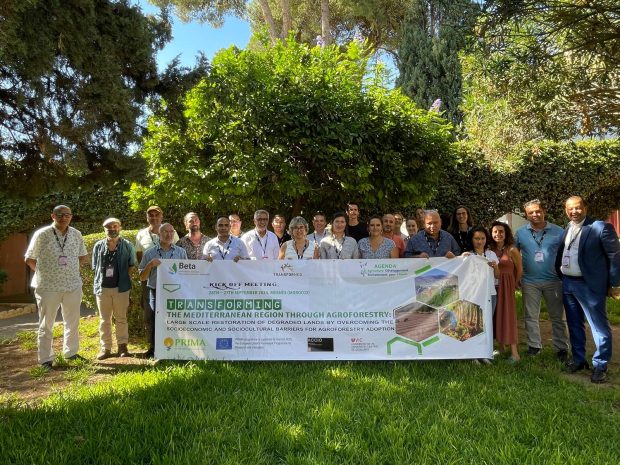TRANSFORMED, a project to promote agroforestry systems in the Mediterranean region, is launched
The main objective of TRANSFORMED is to promote a set of agroforestry systems adapted to Mediterranean conditions

One of the main problems currently affecting the Mediterranean region is the prolonged drought, which has reduced the production of many hectares of agricultural land, pushing them towards marginalisation. When considering new strategies for revitalising these areas, it is important to remember that some trees and shrubs are drought resistant thanks to their deep root systems, which are better adapted to these conditions. This makes them reliable, sustainable and cost-effective options for agriculture, as well as providing a more favourable environment for other species of flora and fauna.
In this context, the inaugural meeting of the TRANSFORMED project, a new Euro-Mediterranean project coordinated by the BETA Technological Centre of the Uvic-UCC, and funded by the PRIMA Foundation, took place this week in Meknes, Morocco. The consortium brings together institutions from Spain, France, Turkey, Morocco, Tunisia, Portugal and Germany.
The main objective of TRANSFORMED is to promote a set of agroforestry systems adapted to Mediterranean conditions, to propose their large-scale adoption and to assess the benefits they can bring: restoring soil health, increasing biodiversity and improving productivity in degraded or saline areas.
Agroforestry systems combine perennial woody plants (such as trees and shrubs) with other crops or livestock on the same unit of land. These practices can improve soil fertility, reduce erosion and increase water availability, making it possible to use degraded land that would otherwise be unproductive.
The TRANSFORMED consortium has already identified several agroforestry systems that have been successfully implemented in both the northern and southern Mediterranean. These cases will be presented as examples to follow and will serve as a starting point to improve current knowledge and work in a multi-sectoral approach involving scientists, agronomists, economists, private sector professionals, policy makers and civil society.
